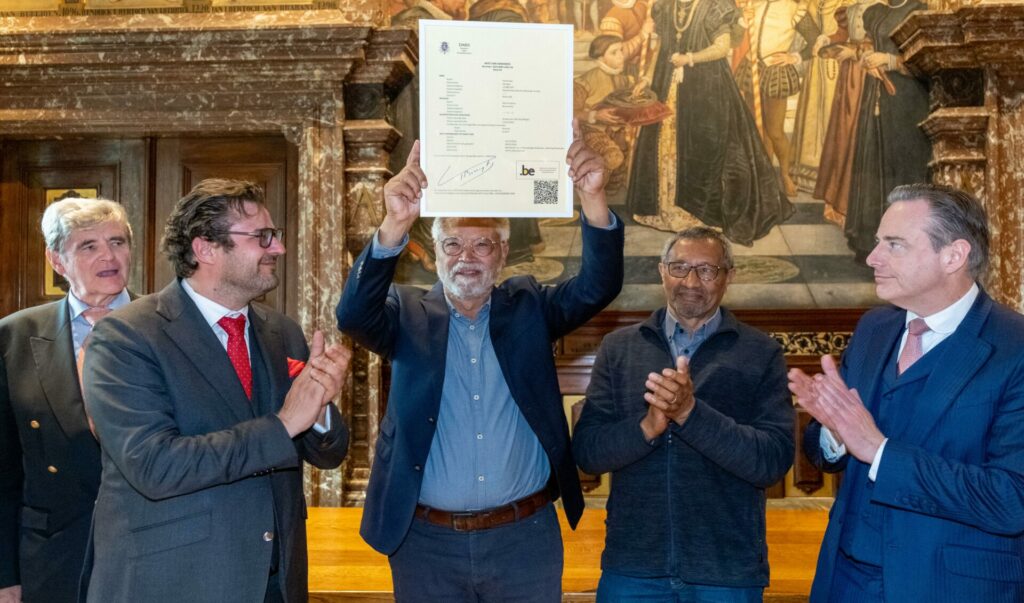Georges Kamanayo (75), who was born to a Rwandan mother and a Belgian father when Rwanda was under Belgian colonial rule and taken to grow up with a foster family in Antwerp when he was 13, has now finally received his birth certificate.
Kamanayo is a so-called Métis: a child (now an adult) born in the 1940s and 1950s of an African mother and a Belgian colonial father in the colonised territories of Congo, Rwanda or Burundi. In the run-up to the countries' independence in the 1960s, the Belgian State took the children from their mothers because it felt that African women would not raise a child of partly European descent "properly."
"Our identity was erased. In fact, we were not allowed to exist," Kamanayo told Gazet van Antwerpen. "But now that I have my birth certificate, I really exist. It has been 45 years since I got married in the Antwerp town hall. I had to wait until today for my birth certificate."
He called his departure from Rwanda an "arranged kidnapping" and explained that the Belgian culture came as a real shock to him when he was a 13-year-old boy. "We were given food that we were not familiar with and were introduced to habits that were unknown to us. Belgium was a foreign world to us, and it did not really want us. Our names were changed, our past was shoved under the rug.”
Building bridges
At the time, the children were placed in orphanages or foster homes in Belgium without knowing their real families with birth certificates that were forged, missing or not accepted by the Belgian authorities. Many of the Métis children – specifically those placed in a Belgian foster family between 1959 and 1962 – still do not have a birth certificate to this day.
Not only is this discriminatory, but it also creates numerous administrative problems for Métis people in question. Therefore, Belgium worked out a solution with the Board of Procurators General at the end of last year: the only thing Métis people have to do is register at the municipal or city hall of their hometown to request their birth certificate. The local authorities will handle the rest.
Related News
- After 60 years, Belgium hands over birth certificate to mixed-race Métis person
- Parliament passes bill making it easier for mixed-race persons to consult colonial archives
- Legacies of the colony: The lost children of Congo
As a result of this procedure, Antwerp mayor Bart De Wever this week finally handed Kamanayo his official documents and welcomed him as a "full citizen" after 75 years.
While finally handing over Kamanayo's birth certificate is a symbolic act, he stressed that the battle is not over yet. "That battle will continue for life. I hope that both Belgium and the former colonies understand that we are the best ambassadors and can be bridge builders between Europe and Africa like no other."

